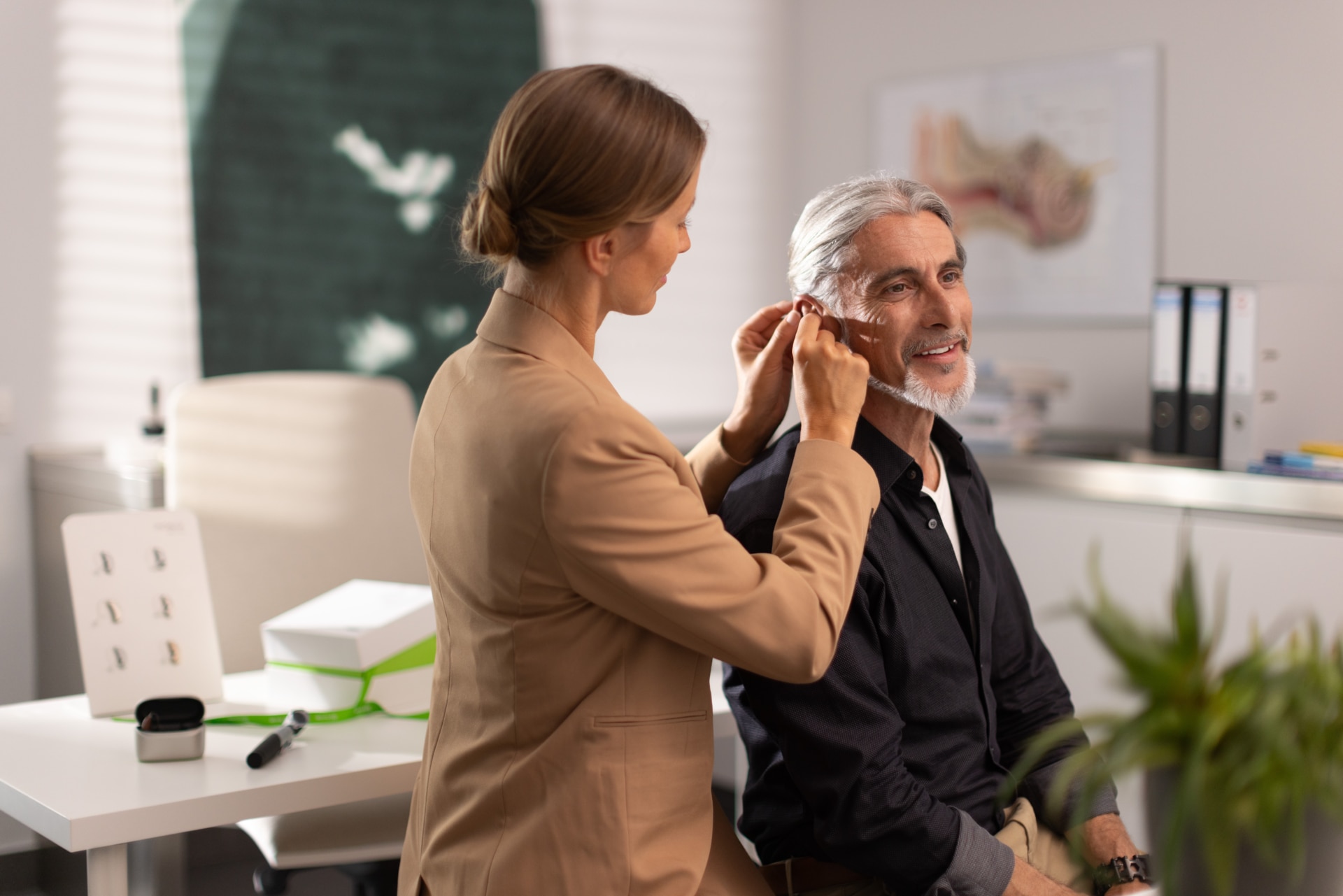Choose another country or region to see content specific to your location.
Next generation of AI-powered hearings aids
Phonak Infinio Ultra
Adaptive. Connected. Easy. Clear.
Hearing aids designed to always adapt to your situation, connect you to any device, provide easier maintenance and deliver a next level of clear speech1 throughout the day.
Choose the best Infinio Ultra hearing aid for your lifestyle

Infinio Ultra R
The best sound for you. No matter the situation. Anytime. Anywhere.
Wherever life takes you, lnfinio Ultra R is ultra adaptive. With AutoSense OS 7.0, you get uniquely personalized, blended hearing programs and AI-powered, optimal sound. Whatever your lifestyle, Ultra adapts to you.

Infinio Ultra Sphere
Any voice. Any direction. Always clear.
Infinio Ultra Sphere helps you hear better even in the most challenging situations. Real-time AI enhances speech from any direction and from multiple people, making conversations in noise easier to understand. Features an all-day battery life lasting up to 56 hours*.

Virto™ R lnfinio
For comfort, for style, for sound quality that fits precisely to you.
Virto R Infinio is designed to offer all-day comfort and an extraordinary hearing experience that looks as good as it feels. These hearing aids are custom-crafted for the unique anatomy of every individual ear.

Phonak hearing aids
Discover Phonak’s advanced hearing aids, engineered to support every level of hearing loss and enhance your listening experience. Explore our solutions today.

Take the online hearing test
An online hearing test offers a quick snapshot of your hearing health from home. While not a full diagnosis, it can help you decide if it’s time to see a specialist.

Finding a hearing care provider
Finding a hearing care provider is the first step toward better hearing and tinnitus relief. They’ll evaluate your hearing and help you choose the right solution for your needs.

Next-Level Hearing with AI
Stay ahead in a rapidly evolving field with our AI-powered solutions and educational resources.
Footnotes
* The maximum battery runtime is determined by battery condition, hearing loss, environmental sound classification, streaming usage and activated feature set.
1. Raufer, S., Kohlhauer, P., Jehle, F., Kühnel, V., Preuss, M., Hobi, S. (2024). Spheric Speech Clarity proven to outperform three key competitors for clear speech in noise. Phonak Field Study News retrieved from https://www.phonak.com/evidence
2. Based on Phonak internal data. Contact claims@sonova.com if you are interested in more information.
The Bluetooth® word mark and logos are registered trademarks owned by Bluetooth SIG, Inc. and any use of such marks by Sonova AG is under license.





